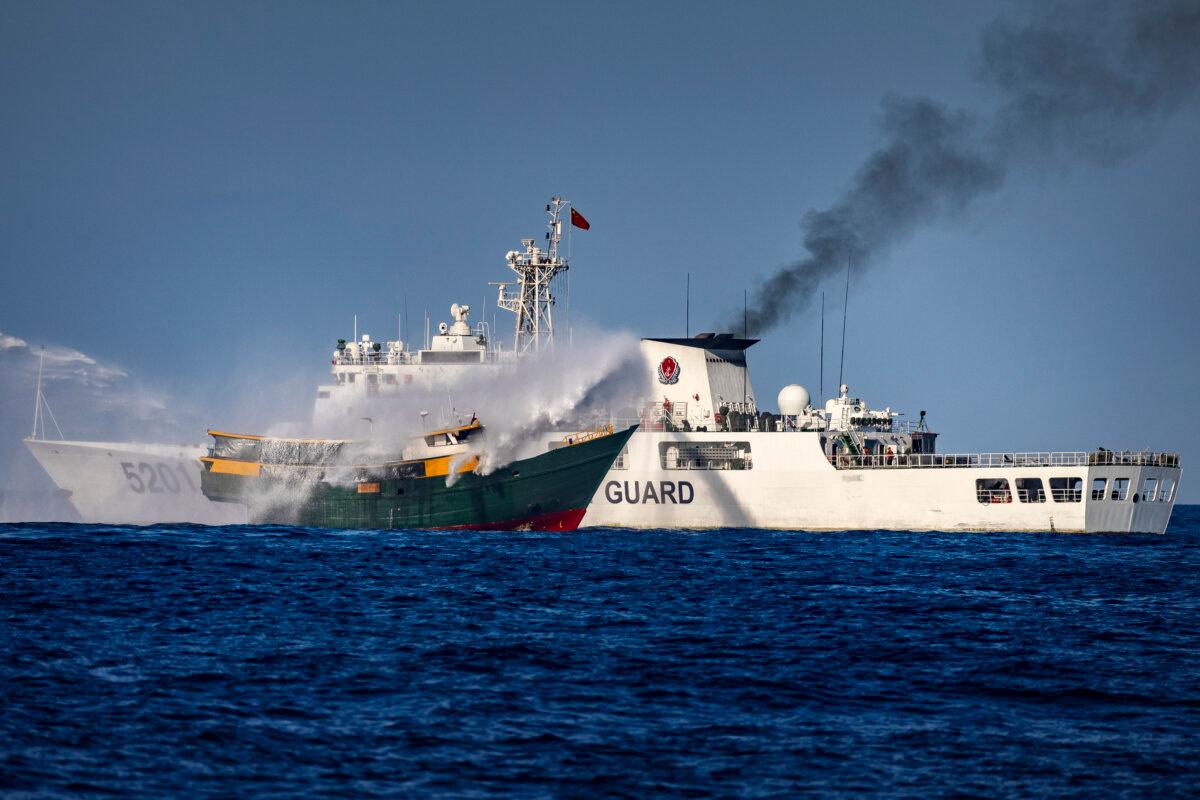Deputy Secretary of State Kurt Campbell raised ’serious concerns’ about CCP’s actions in the vital waterway during a phone call with a senior Chinese official.
U.S. Deputy Secretary of State Kurt Campbell expressed “serious concerns” over the Chinese regime’s “destabilizing actions” in the South China Sea during a phone call with his Chinese counterpart on Thursday, the State Department said.
Mr. Campbell’s phone conversation with China’s vice premier of foreign affairs, Ma Zhaoxu, is the latest in a series of interactions Washington said aimed at responsibly managing competition between the two rival powers.
The United States and communist China remain at odds on almost every front, ranging from trade to technology, human rights conditions in the mainland, and Hong Kong, to Beijing’s role in aiding Moscow’s war against Ukraine and the regime’s military aggression in the South China Sea.
According to the U.S. State Department, Mr. Campbell’s conversation with Mr. Ma covered both areas of difference and potential cooperation.
Mr. Campbell “raised serious concerns regarding the PRC’s destabilizing actions in the South China Sea, including at Second Thomas Shoal, and affirmed the United States’ support for freedom of navigation and overflight and the peaceful resolution of disputes, consistent with international law,” State Department spokesperson Matthew Miller said in a statement on June 27, using the acronym of China’s official name under the Chinese Communist Party (CCP), the People’s Republic of China.
Mr. Campbell, who until recently served as President Joe Biden’s Indo-Pacific policy czar, told Mr. Ma that the U.S. commitments to the Philippines under the Mutual Defense Treaty remain “ironclad,” according to Mr. Miller.
Regarding the war in Ukraine, Mr. Miller said Mr. Campbell “reiterated concern” over the Chinese regime’s support for the Russian defense industrial base. The two senior officials also discussed challenges on the Korean Peninsula, he said.
The Chinese regime appeared to be unmoved by Washington’s appeal.
Mr. Ma blamed the Philippines for the rising tensions in the South China Sea and called on the U.S. side to stop supporting what China called the Philippines’ “provocations and nuisance,” according to Ms. Mao.
Its neighbors—namely, the Philippines, Vietnam, Malaysia, Taiwan, and Brunei—also overlapped claims in the important waterway.

In a June 17 encounter, the Philippines said its personnel were injured, and vessels were damaged after a clash between boats from Manila and Beijing near Second Thomas Shoal, part of the disputed Spratly Islands in the South China Sea.
China’s defense ministry said the Philippine side “deliberately and dangerously” approached its naval ships, causing the collision. The Philippines’ foreign ministry blamed the Chinese authorities’ “illegal and aggressive actions” for the accident.










